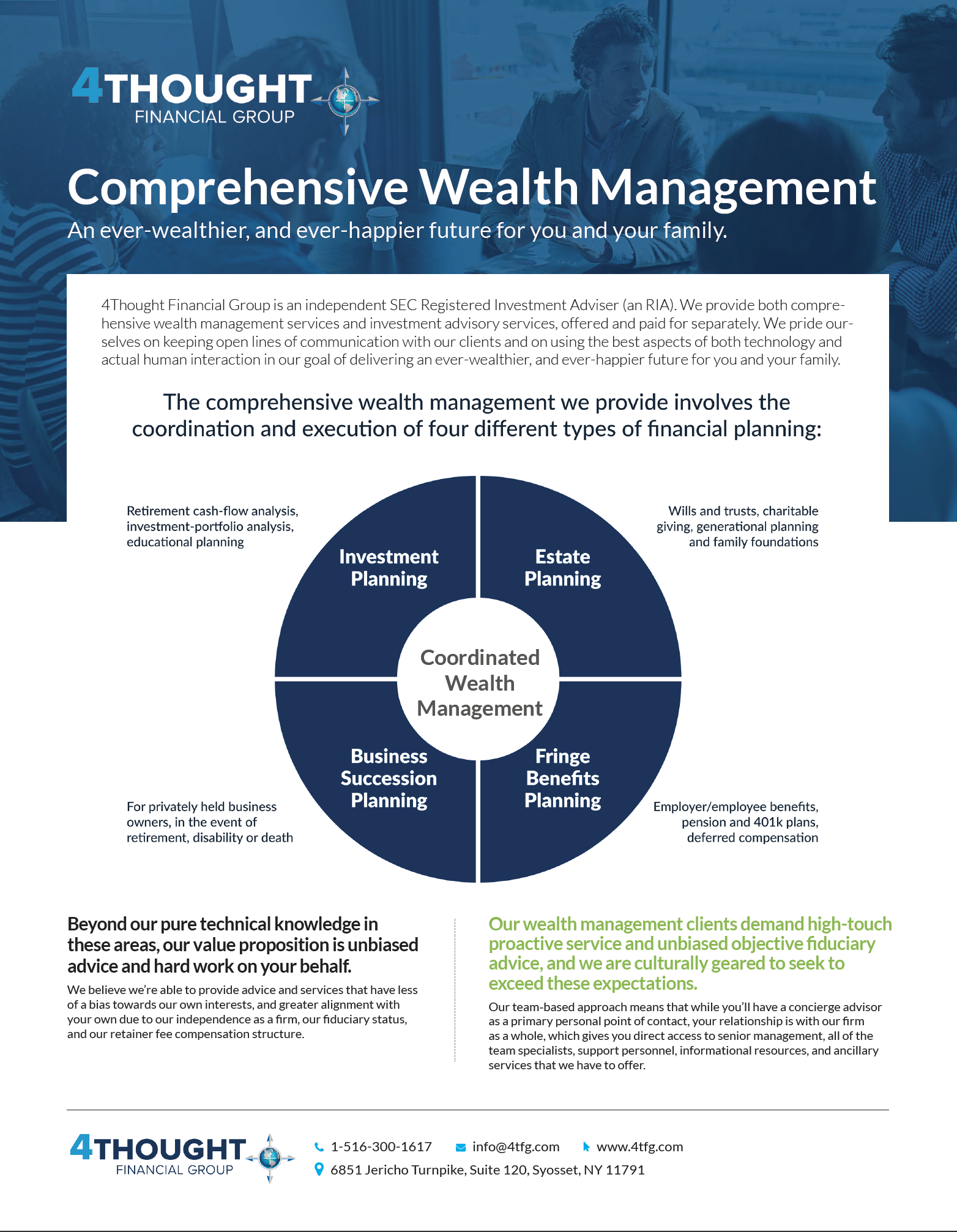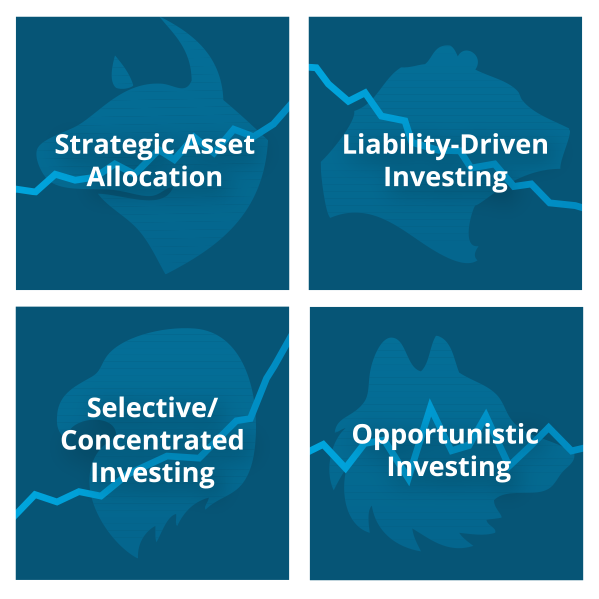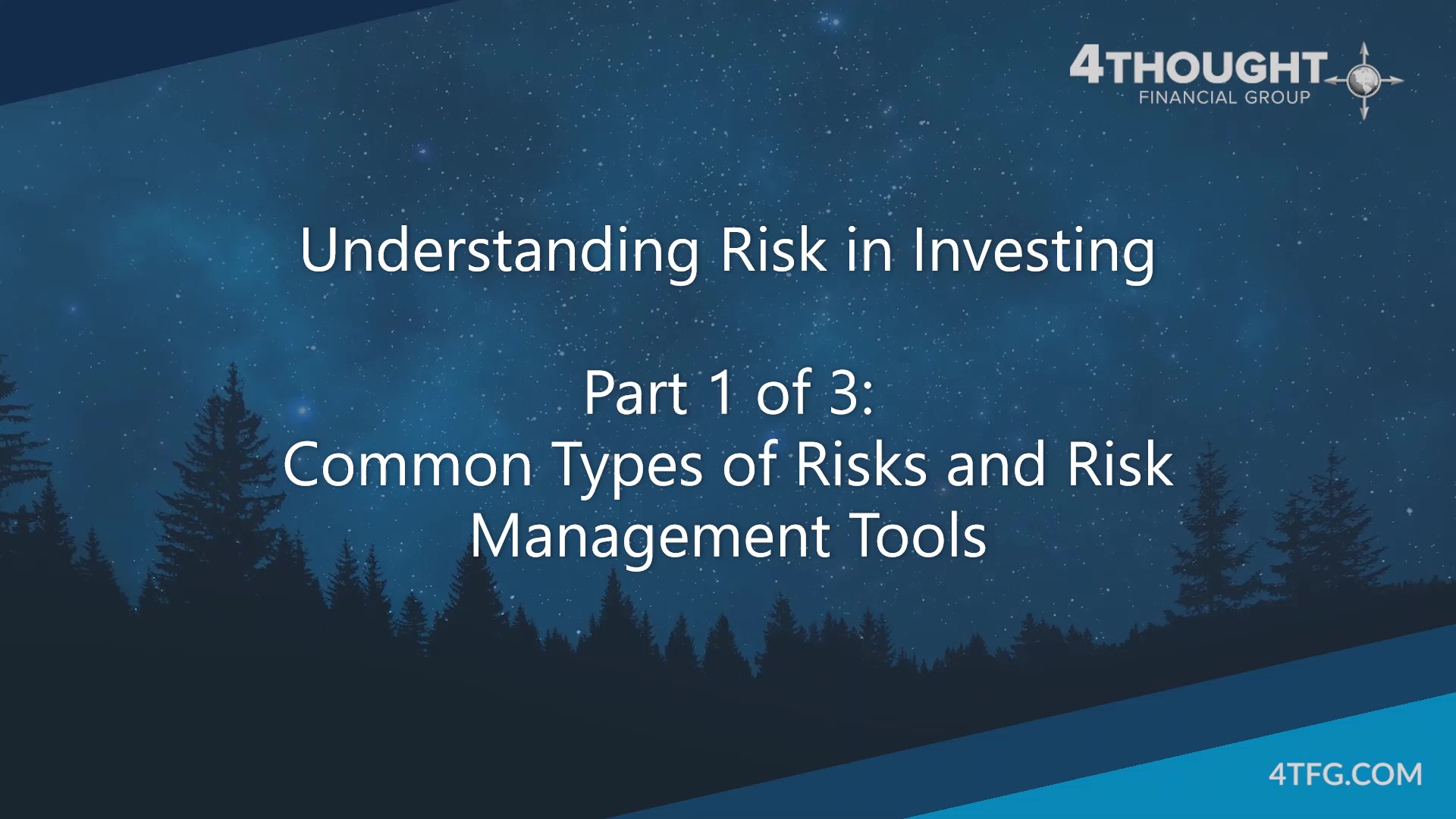

Wealth Management by 4Thought Financial Group
"The comprehensive wealth management we provide involves the coordination and execution of four different types of financial planning: Investment Planning, Estate Planning, Business Succession Planning and Fringe Benefit Planning."
The purpose of money is to create stability, peace of mind and enjoyment for you and your family. If you work towards these three things, you'll always be on the right track. With that in mind, here's the order in which you should take on your financial planning goals.
1. Build Your Emergency Fund
Most experts recommend keeping an emergency fund that covers at least three to six months of living expenses. Some even say your emergency fund should be enough to last a year.
Your emergency fund should cover things like unexpected car repairs, large medical bills, or temporary unemployment. Having this fund prevents you from racking up high-interest credit card debt that could linger for years.
Most importantly, it gives you the security of knowing that you can tackle life's challenges without worrying about losing your home or where you will get the money.
2. Eliminate Debt
Your next goal should be eliminating debt. Good Financial Cents classifies debt as "evil" and with good reason. Not only do you have to pay the money back but the amount you have to pay keeps increasing thanks to interest until you've paid back every cent.
There are two reasons to put cutting debt after your emergency fund. First, you want to be in a position where you can completely avoid adding debt. Second, there may be times when you absolutely need cash and aren't able to take out a loan or open a new credit card.
Start with the highest-interest debts that put the biggest strain on your finances and work your way down. Along the way, look for refinancing offers or credit card balance transfer deals, but don't use these as an excuse to add debt.
3. Grow Your Retirement Account
When retirement seems like a distant dream, it can be too easy to put off your retirement goals. You must make retirement savings one of your highest priorities.
While many people plan on working, at least part-time, into retirement, there is no guarantee that you will be physically or mentally able to work. Your industry may enter a decline, or you may need to leave the workforce to care for an ailing family member. There are also no guarantees that Social Security will be enough to cover your bills, won't have an increased retirement age, or will even still exist when you need it.
Planning now allows you to grow your portfolio and gives you financial flexibility later on. You can also take advantage of tax benefits for retirement savings to increase your spending power today.
4. Review Your Insurance Coverage
Insurance should cover anything you can't afford to cover on your own. Think home disasters, car accidents and large medical bills.
Check your policies today to ensure that you have adequate coverage. Not being properly insured could lead to bankruptcy or worse.
On the other hand, you can cut your insurance expenses by trimming unnecessary coverage. Raise your deductibles, and cover minor mishaps with your emergency fund. For things you can cover completely out of pocket, like phone protection plans, skip coverage altogether.
5. Spend Responsibly
Financial prudence does not mean living a boring life. When you take charge of your finances to tackle necessary expenses, you'll find that you still have money left over each month.
Set this money aside for things like vacations, nights out and holiday presents. You'll feel greater satisfaction knowing that you've already worked to cover these expenses and don't need to worry about paying a credit card bill. Further, your responsible spending habits and debt-free lifestyle will leave you with more money available for your next financial planning goals.






Leave a Comment